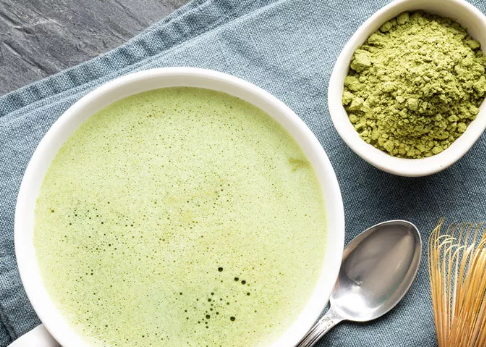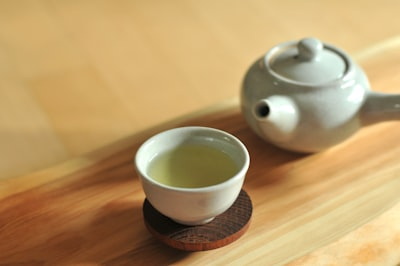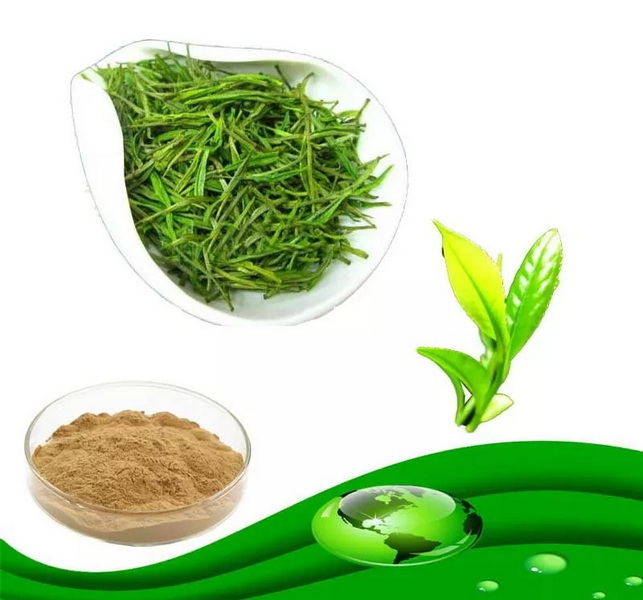Content Menu
● Introduction to L-Theanine
● Criteria for Selecting a Reliable Manufacturer
>> 1. Product Quality
>> 2. Manufacturing Processes
>> 3. Regulatory Compliance
>> 4. Customer Service and Support
>> 5. Sustainability and Environmental Responsibility
● Additional Considerations
>> Supply Chain Transparency
>> Research and Development
>> Market Trends and Consumer Preferences
● Conclusion
● FAQ
>> 1. What is the typical concentration of L-theanine in green tea?
>> 2. How is L-theanine extracted from green tea leaves?
>> 3. What certifications should a reliable manufacturer have?
>> 4. What are the benefits of using L-theanine in dietary supplements?
>> 5. How can I ensure the sustainability of the L-theanine I purchase?
● Citations:
When searching for a reliable Green Tea L-Theanine 60% manufacturer, several key factors should be considered to ensure the quality and efficacy of the product. L-theanine, an amino acid found in green tea, is renowned for its calming and cognitive-enhancing properties, making it a popular ingredient in dietary supplements and functional foods. Here, we will delve into the essential criteria for selecting a trustworthy manufacturer, including product quality, manufacturing processes, regulatory compliance, customer service, and sustainability.

Introduction to L-Theanine
L-theanine is a unique amino acid primarily found in the leaves of the Camellia sinensis plant, which is used to make green tea. It is known for promoting relaxation, reducing stress levels, and improving focus without causing drowsiness. The typical concentration of L-theanine in green tea is between 30-50 mg per 2/3 cups, but concentrated extracts like those with 60% L-theanine are more commonly used in supplements to provide a standardized dose.
Criteria for Selecting a Reliable Manufacturer
1. Product Quality
A reliable Green Tea L-Theanine 60% manufacturer should prioritize product quality. This involves using high-quality green tea leaves as the raw material and employing advanced extraction techniques to ensure a high concentration of L-theanine. The product should be tested for purity and potency using methods like High-Performance Liquid Chromatography (HPLC) to confirm it meets the 60% L-theanine standard.
2. Manufacturing Processes
The manufacturing process is crucial for maintaining the integrity of L-theanine. It should involve a series of steps including extraction, filtration, and concentration. Some manufacturers may use additional purification methods like ion exchange chromatography to enhance the purity of the extract.
3. Regulatory Compliance
Ensuring compliance with regulatory standards is essential. Manufacturers should adhere to Good Manufacturing Practices (GMP) and obtain necessary certifications such as ISO 9001 for quality management and ISO 22000 for food safety. Compliance with regulations like those set by the FDA in the U.S. or EFSA in Europe is also critical.
4. Customer Service and Support
Good customer service is vital for addressing inquiries, providing product information, and ensuring timely delivery. A reliable manufacturer should have a responsive customer support team and offer flexible packaging options to meet different customer needs.
5. Sustainability and Environmental Responsibility
In today's market, consumers increasingly value sustainability and environmental responsibility. Manufacturers should adopt eco-friendly practices in their supply chain and production processes to minimize environmental impact.

Additional Considerations
Supply Chain Transparency
Transparency in the supply chain is crucial. Manufacturers should be able to trace the origin of their green tea leaves and ensure that they are sourced from environmentally responsible farms. This not only supports sustainable agriculture but also helps maintain consistent product quality.
Research and Development
A commitment to research and development is important for staying ahead in the industry. Manufacturers should invest in studies that explore new applications of L-theanine and improve extraction methods to enhance product efficacy and purity.
Market Trends and Consumer Preferences
Understanding market trends and consumer preferences is vital for product development. With the rise of veganism and vegetarianism, manufacturers should ensure that their products are free from animal-derived ingredients and by-products.
Conclusion
Choosing a reliable Green Tea L-Theanine 60% manufacturer involves careful consideration of several factors, including product quality, manufacturing processes, regulatory compliance, customer service, sustainability, and additional considerations like supply chain transparency and research and development. By focusing on these aspects, businesses can ensure they are partnering with a supplier who provides high-quality products that meet consumer demands and regulatory standards.

FAQ
1. What is the typical concentration of L-theanine in green tea?
The typical concentration of L-theanine in green tea is between 30-50 mg per 2/3 cups. However, concentrated extracts like those with 60% L-theanine are more commonly used in supplements to provide a standardized dose.
2. How is L-theanine extracted from green tea leaves?
L-theanine is extracted from green tea leaves through a process involving extraction with deionized water, followed by filtration and concentration steps. Advanced methods may include microfiltration, nanofiltration, and chromatography to enhance purity.
3. What certifications should a reliable manufacturer have?
A reliable manufacturer should have certifications such as ISO 9001 for quality management and ISO 22000 for food safety. Compliance with regulatory bodies like the FDA or EFSA is also important.
4. What are the benefits of using L-theanine in dietary supplements?
L-theanine is known for promoting relaxation, reducing stress levels, and improving focus without causing drowsiness. It is often combined with caffeine for enhanced cognitive benefits.
5. How can I ensure the sustainability of the L-theanine I purchase?
To ensure sustainability, look for manufacturers that adopt eco-friendly practices in their supply chain and production processes. This may include sustainable tea farming methods and minimal environmental impact during processing.
Citations:
[1] https://nutraceuticalbusinessreview.com/cambridge-commodities-adds-naturally-sourced-l-theanine-198447
[2] https://patents.google.com/patent/US7303773B2/en
[3] https://pmc.ncbi.nlm.nih.gov/articles/PMC4787341/
[4] https://www.marknature.com/products/green-tea-extract-60-l-theanine
[5] https://firstendurance.com/blogs/articles/suntheanine%C2%AE-your-secret-weapon-part-2
[6] https://www.healthline.com/health/l-theanine
[7] https://www.made-in-china.com/manufacturers/green-tea-extract-powder.html
[8] https://pmc.ncbi.nlm.nih.gov/articles/PMC9014247/






























